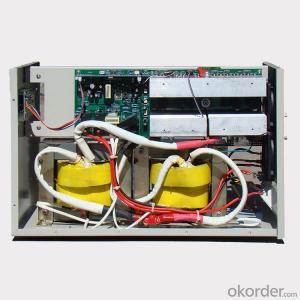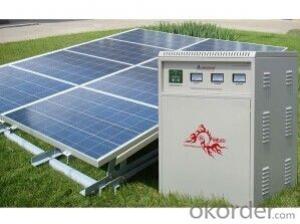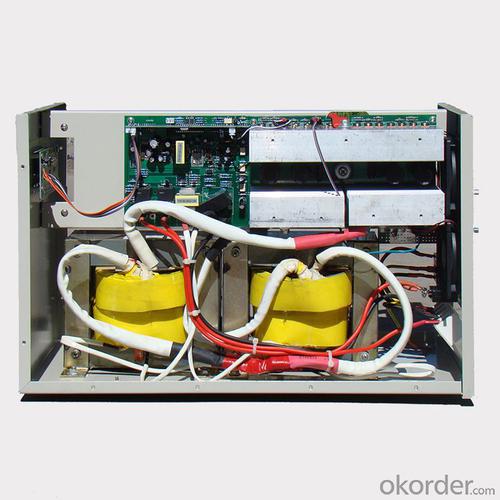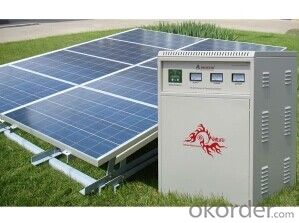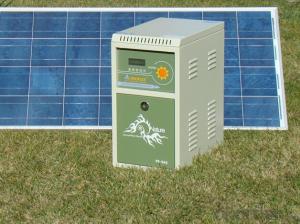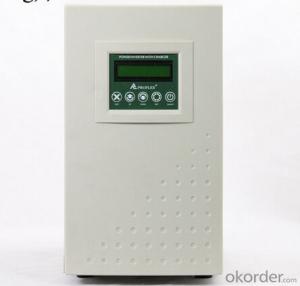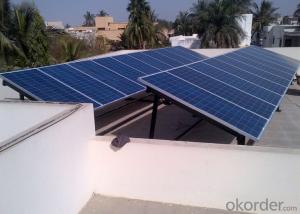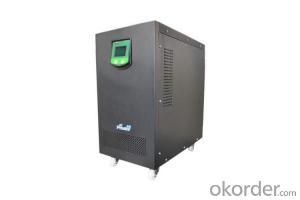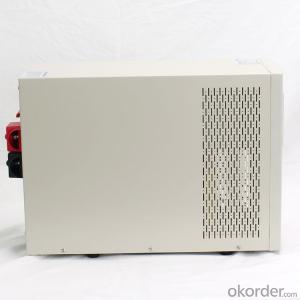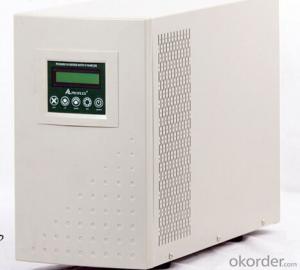Montana Solar Energy Systems - Off Grid Solar Power System PR-SAS3000 with Battery Tank 2400W
- Loading Port:
- Tianjin
- Payment Terms:
- TT OR LC
- Min Order Qty:
- 10 pc
- Supply Capability:
- 10000 pc/month
OKorder Service Pledge
OKorder Financial Service
You Might Also Like
Specification
Specifications
1.Supply 2 work modes: to save electricity bill or to supply long time power backup.
2. Supply battery tank,high integrated.
AC solar power system consists of solar batteries, solar controller, battery, inverter components.
Used to solve rural or remote areas without electricity, such as highland, island, pastoral, villas, border posts and other military and civilian life electricity.
Warranty
CNBM Solar panel provides one of the most comprehensive module warranties in the industry:
· 10 years for product defects in materials and workmanship
· First 12 years for 90% of warranted minimum power
· Remaining 25 years for 80% of warranted minimum power
Certification
CNBM Solar panel strictly carries out the ISO 9001 quality control methodology and has implemented check points at every step of the production process to ensure our product performance durability and safety. The stringent quality control process has been confirmed by numerous independent agencies and LDK Solar modules earned IEC, TUV and UL certifications.
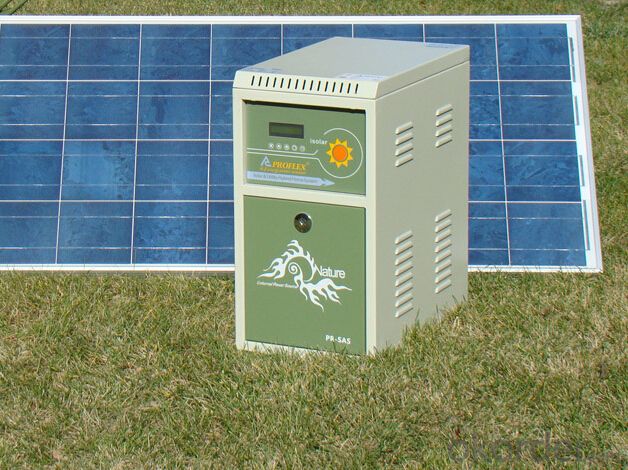
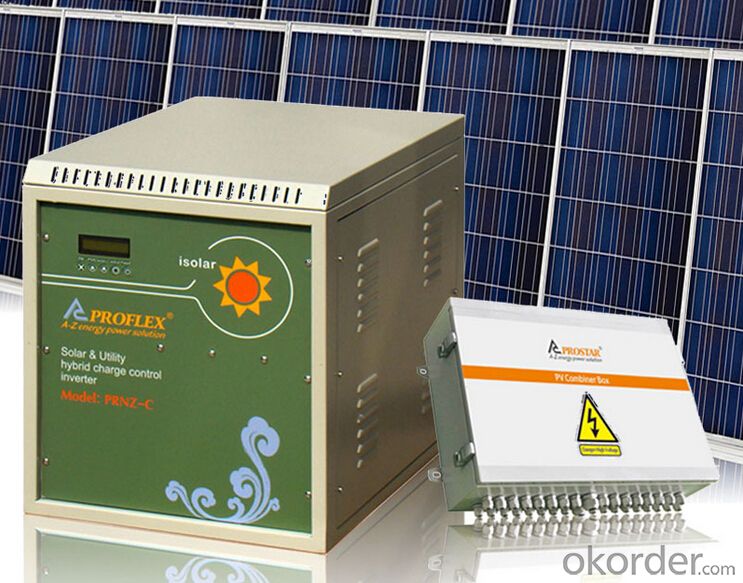
FAQ
l Where can I buy your products?
You could find our products from dealers or contact our sales team directly. We will provide you with detailed services.
l How to contact us?
Contact details can be found from website www.okorder.com to contact us. We look forward to providing you with professional services.
l What is the application field of your products?
They can be used in the small photovoltaic (PV) grid power generation systems of family units as well as the commercial photovoltaic system such as BIPV, BAPV and etc.
l What kinds of modules do your inventers support?
Our inventers support most of mainstream components and modules in the market. Should you require more details, please do not hesitate to contact our technical personnel.
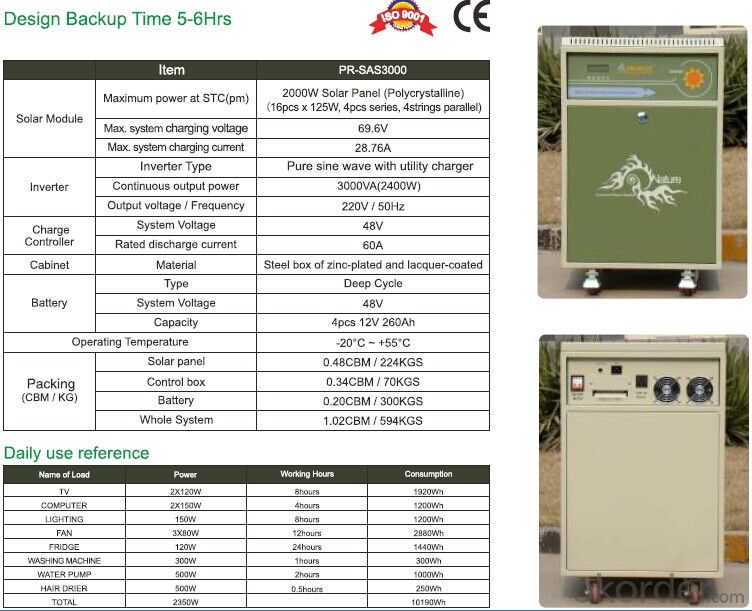
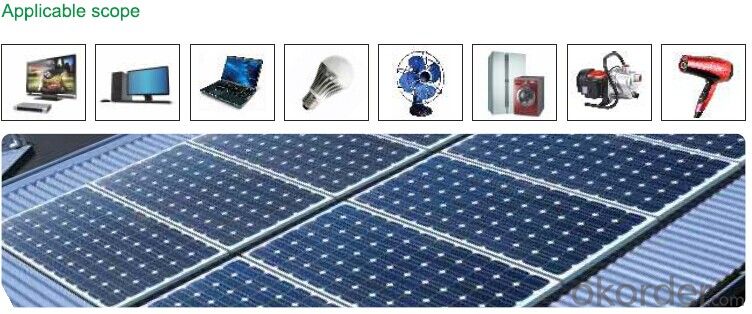

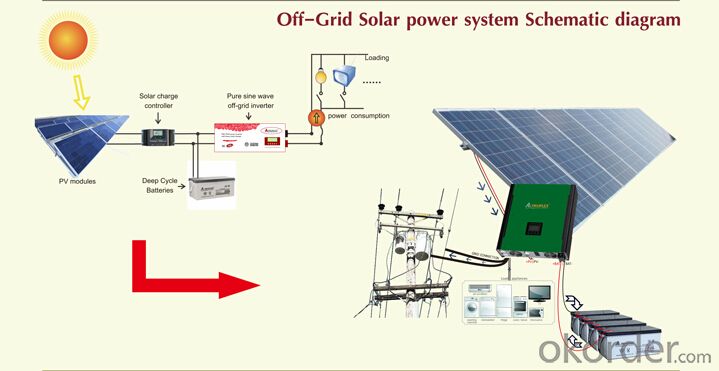
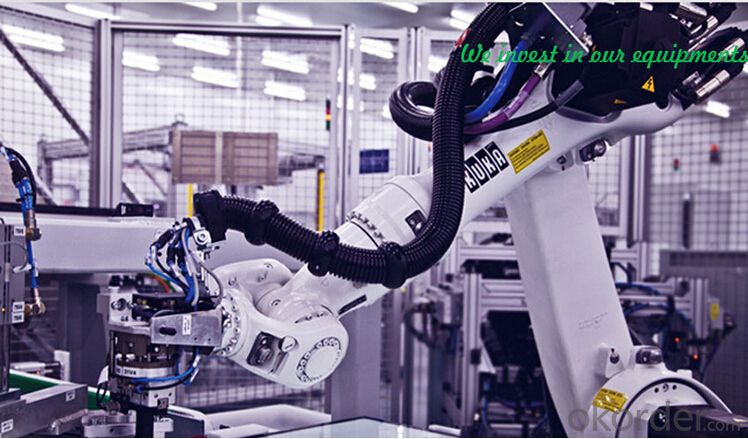
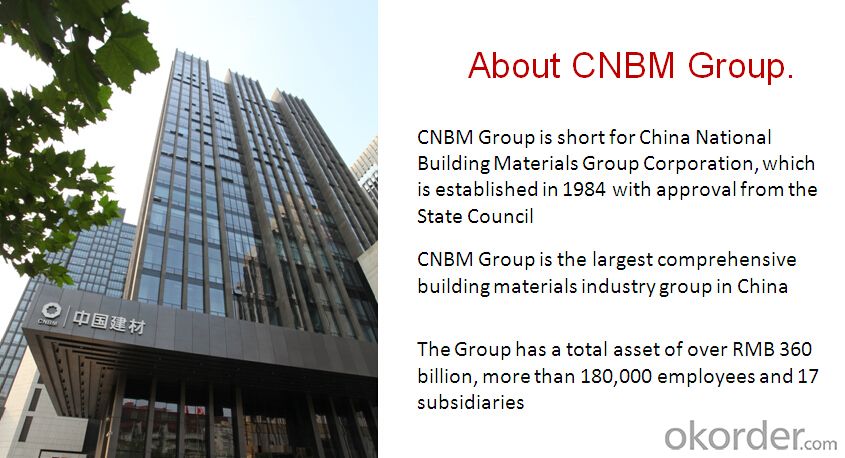
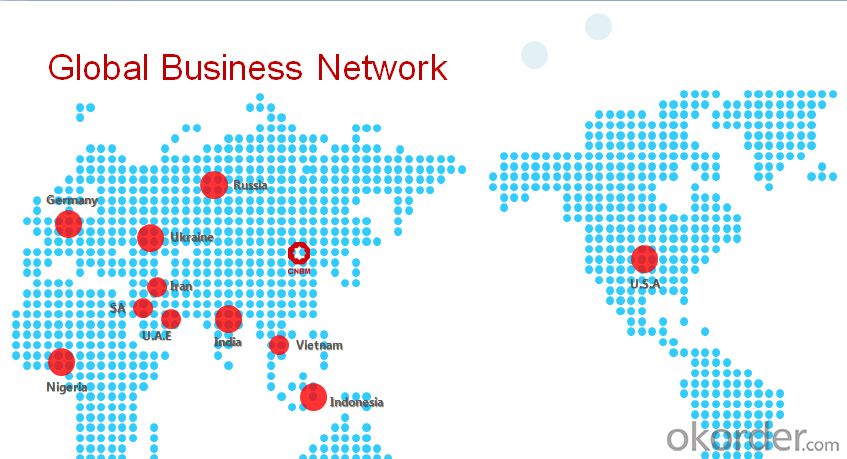
- Q: How does the efficiency of solar panels vary based on the angle and orientation?
- The efficiency of solar panels varies based on the angle and orientation as they receive maximum sunlight when they are positioned perpendicular to the sun's rays. Panels that are tilted towards the sun at the optimal angle can capture more sunlight, resulting in higher efficiency. Incorrect angles or orientations can lead to reduced sunlight absorption and lower efficiency.
- Q: Can solar energy systems be integrated with battery storage?
- Yes, solar energy systems can be integrated with battery storage. Battery storage allows excess solar energy generated during the day to be stored for use during times when the sun is not shining, such as at night or during cloudy weather. This integration enhances the reliability and efficiency of solar energy systems by providing a continuous and reliable source of electricity.
- Q: Can solar energy systems be used for powering electric vehicle car-sharing programs?
- Yes, solar energy systems can be used for powering electric vehicle car-sharing programs. Solar panels can be installed on the rooftops of car-sharing stations or nearby buildings to generate clean and renewable energy. The energy harvested from these solar panels can then be used to charge the electric vehicles in the car-sharing program. By utilizing solar energy, car-sharing programs can significantly reduce their carbon footprint and reliance on fossil fuels. Additionally, solar-powered car-sharing programs can benefit from lower operating costs as they are not dependent on electricity from the grid, which can be expensive and subject to price fluctuations. Overall, integrating solar energy systems into electric vehicle car-sharing programs is a sustainable and environmentally friendly solution.
- Q: Can a solar energy system be used to power electric vehicles?
- Indeed, electric vehicles can benefit from the utilization of solar energy systems. Sun-absorbing panels can be conveniently mounted on rooftops or other appropriate surfaces to harness sunlight and transform it into usable electricity. This generated power can subsequently be employed to charge the batteries of electric vehicles, thereby offering a clean and sustainable energy source. In fact, numerous individuals have already embraced solar energy to fuel their electric cars, paving the way for a greener and more environmentally friendly transportation alternative. Furthermore, continuous progressions in solar technology have enhanced its efficiency and affordability, rendering it an increasingly feasible choice for powering electric vehicles.
- Q: Can solar energy systems be installed on any type of roof?
- Yes, solar energy systems can be installed on any type of roof, including flat, sloped, metal, asphalt, and tile roofs. The installation process may vary based on the roof type, but with proper planning and equipment, solar panels can be mounted securely and efficiently.
- Q: What is the role of solar energy systems in reducing water usage?
- Solar energy systems play a significant role in reducing water usage by providing a sustainable and renewable source of power that reduces reliance on water-intensive energy sources like fossil fuels and nuclear power. Solar power does not require water for operation, unlike coal or gas-fired power plants that consume large amounts of water for cooling. By promoting the adoption of solar energy systems, we can effectively conserve water resources and contribute to a more sustainable future.
- Q: What are the different installation requirements for solar energy systems?
- The installation requirements for solar energy systems can vary depending on factors such as the size of the system, the location, and the specific components being used. However, some common requirements include having a suitable roof or ground space for the installation of solar panels, ensuring proper structural integrity to support the weight of the system, and having access to unobstructed sunlight for optimal energy generation. Additionally, the electrical wiring and connections need to be properly installed to connect the solar panels to the electrical grid or battery storage system. It is important to comply with local building codes and regulations and work with a professional installer to ensure a safe and efficient installation.
- Q: Can solar energy systems be used in areas with high levels of dust or debris?
- Yes, solar energy systems can be used in areas with high levels of dust or debris. However, regular cleaning and maintenance of the solar panels may be required to ensure optimal performance and efficiency.
- Q: Can solar energy systems be used for powering off-grid oil platforms?
- Yes, solar energy systems can be used for powering off-grid oil platforms. These platforms can install solar panels to generate electricity, which can be used to power various operations on the platform such as lighting, communication systems, and equipment. Additionally, excess energy can be stored in batteries for use during periods of insufficient sunlight. The use of solar energy can reduce the reliance on fossil fuels and lower the environmental impact of these platforms.
- Q: Can solar energy systems be installed on flat roofs?
- Yes, solar energy systems can be installed on flat roofs. However, the installation process and design considerations may be different compared to pitched or sloped roofs.
Send your message to us
Montana Solar Energy Systems - Off Grid Solar Power System PR-SAS3000 with Battery Tank 2400W
- Loading Port:
- Tianjin
- Payment Terms:
- TT OR LC
- Min Order Qty:
- 10 pc
- Supply Capability:
- 10000 pc/month
OKorder Service Pledge
OKorder Financial Service
Similar products
Hot products
Hot Searches
Related keywords
